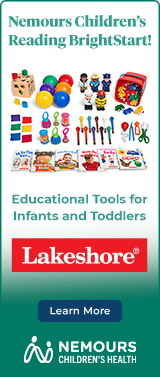Karen Hesse, the author of the recommended childrens' book Come On, Rain! uses vocabulary that will bring vivid images to your child’s mind. For example, here's how Hesse describes an upcoming storm: All the insects have gone still. Trees sway under a swollen sky, the wind grows bold and bolder . . . and just like that, rain comes. Through words and illustrations, your child will experience the oppressive heat of a hot summer day and the rain that finally comes to provide relief.
Before, During and After Reading
Letter Knowledge
Ask your child to point to the first word in the title, then read the title. Ask your child to name all the letters in the title that she knows. Talk about the punctuation marks and their purposes (comma, exclamation point).
Oral Language
Discuss the front cover illustration. Remind your child that the title of the book is Come On, Rain! and ask your child to think about the title of the story as she describes the illustration, and predicts what the story might be about. (Research shows that children make greater gains when they engage in analytical thinking such as making predictions or inferences.)
Oral Language
Point out and define three to four unusual vocabulary words as you read the story. For example, you might define the word squinting. Show your child what your eyes look like when you squint, and ask her to squint her eyes. As much as possible, insert the definitions and explanations into the story reading so that they are part of the actual story without interrupting the flow of reading.
Point to and discuss the illustrations. Help your child make connections between the illustrations and the text on the page.
Oral Language
Talk about the beauty of the rich vocabulary that the author uses. You might say: The author uses beautiful language that helps us make pictures in our mind. Then ask your child to close her eyes as you reread one of the pages and imagine in her mind what the author is saying.
For example, you might select the page where Tessie brings her mother iced tea: “Got you some tea, Mamma,” I say, pulling her inside the house. Momma sinks onto a kitchen chair and sweeps off her hat. Sweat trickles down her neck . . .”
After you finish reading the page, ask your child to recall what just happened on that page without looking at the illustration. Provide prompting and support as needed. (Research has demonstrated that children’s language is made stronger when they are asked to recall a portion of, or an entire story.)
Learn more about the importance of oral language as a pre-reading skill, and take the Preschool Reading Screener. The screener can help you determine if your child is on the path to reading readiness, and provides a free plan for moving forward.








